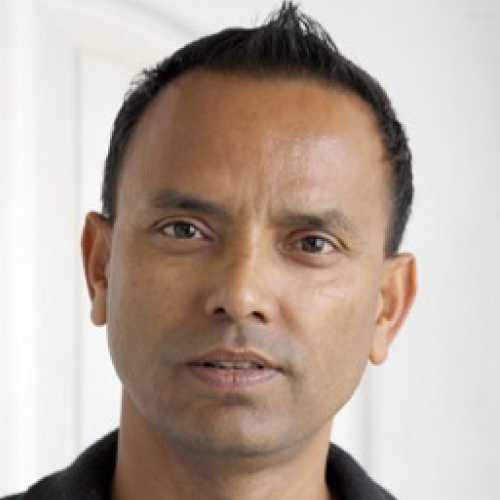
About HERD International
HERD International is a national research and development organisation in Nepal. Its vision is to promote health and well-being by generating quality evidence, and informing policy, strategies and practice.
HERD International brings diverse research expertise including national level household and health facility surveys, randomized controlled trials, operations research, implementation research, participatory approaches and ethnography. The team has contributed to policies, strategies and operational guidelines, that are reflected in the Ministry of Health and Population’s policies and strategies. At present, HERD International is a consortium partner providing FCDO-funded technical assistance to the Ministry for the effective implementation of the 2015-20 Nepal Health Sector Strategy, focusing on policy and planning, service delivery, evidence and accountability, public financial management, quality of care, health infrastructure and gender equality, and social inclusion in health sector.
HERD International and ReBUILD for Resilience
HERD International is a ReBUILD for Resilience partner. The team brings a range of expertise on health policy and systems strengthening, health financing and economics, evaluation of health systems interventions, including participatory research approaches. Through this partnership, HERD hopes to enhance its ongoing strategic engagement with policy practitioners and to help generate contextually appropriate evidence for resilient, equitable health systems.
HERD International projects
Understanding health system resilience to respond to COVID-19 in a federalised context: a case study of health workforce management at sub-national level in Nepal
The gendered experience of close to community providers in fragile and shock-prone settings: implications for policy and practice during and post COVID-19
Dr Sushil Baral

Managing director
Sushil is a principle investigator for HERD’s ReBUILD for Resilience team. He is public health researcher with nearly three decades of experience in health systems health policy and planning, embedded implementation research, and scale-up of evidence-based best practice with a long-term involvement in health sectors in developing countries. As former DFID/FCDO health adviser, he has contributed to the design and execution of DFID’s support of the Nepal Health Sector Programme 1 and 2, and managed the DFID support portfolio (around £55 million) to Nepal’s Ministry of Health and Population. His areas of expertise include designing and managing large-scale surveys, and conducting monitoring and evaluation-based studies and programme-based operational research.
Sushil holds a PhD from the University of Leeds, UK.
Contact Sushil on sushil@herdint.com
Shophika Regmi

Senior manager – Health systems research, evaluation and learning
As part of ReBUILD for Resilience, Shophika is responsible for project management, research design and implementation, monitoring and evaluation, and engagement in research and policy uptake. She is a public health researcher with particular experience in operations research and evaluation studies, developing a broad understanding of evaluation methods in the context of Nepal’s health system. She has led and managed several health systems research projects in the areas such as family planning, nutrition (including national level nutrition surveillance), NCDs and urban health, and has experience in designing and managing large-scale surveys.
Shophika holds a Master’s in Public Health from the University of Sheffield, UK.
Contact Shophika on shophika.regmi@herdint.com
Abriti Arjyal

Research manager – qualitative and multidisciplinary science
Abriti is leading on HERD’s qualitative and participatory approaches during ReBUILD for Resilience, with a focus on gender and intersectionality. She has experience in public health, health systems, service delivery research, social science and gender, and equity. She has led formative and operational field studies, evaluation studies, and literature reviews, developing expertise in design, implementation and analysis of qualitative research, rapid ethnography and various community and participatory based approaches. Abriti is also experienced in the analysis of qualitative data using data management software and frameworks.
Most of Abriti’s work has focused on gender and resilience, including maternal and child health, antibiotic resistance, disaster risk reduction and resilience, nutrition, diabetes, and violence against women.
Sneha Basnet

HR and finance officer
Sneha looks after all of HERD’s human resource and financial matters, including those for ReBUILD for Resilience. She is also involved in and responsible for the planning, direction and coordination of administrative and operational functions for the organisation. Sneha has a proven track record in effectively managing fast-paced, working environments.
Sneha completed an MBA from the Asian Institute of Technology, Thailand, specialising in human resource and international management.
Santosh Giri

Senior officer – Data management and information technology
During ReBUILD for Resilience, Santosh is responsible for monitoring and evaluation activities, along with data management and visualisation. Santosh has several years’ research and data management experience in the public health sector with a particular focus on management and handling quantitative data, from initial data collection to final analysis. Santosh is experienced in statistical programming and modelling using R, Stata, and SPSS, along with data collection and management using Open Data Kit and CommCare.
Santosh holds a dual master’s degree in Public Health from the University of Sheffield, UK and French School of Public Health, France.






